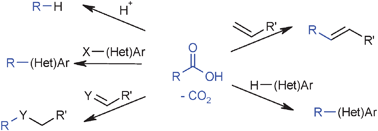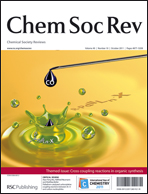Decarboxylative coupling reactions: a modern strategy for C–C-bond formation†
Abstract
This critical review examines transition metal-catalyzed decarboxylative couplings that have emerged within recent years as a powerful strategy to form

- This article is part of the themed collection: Cross coupling reactions in organic synthesis

 Please wait while we load your content...
Please wait while we load your content...